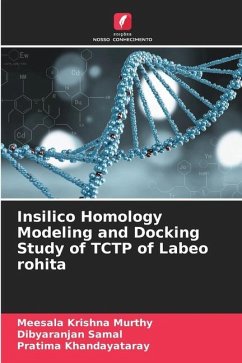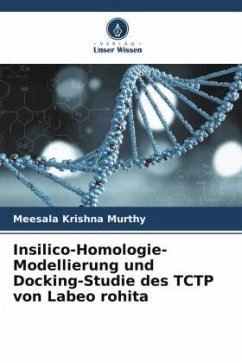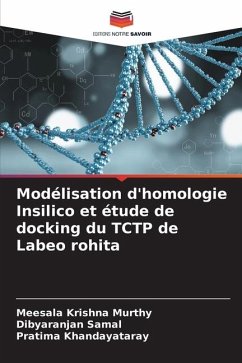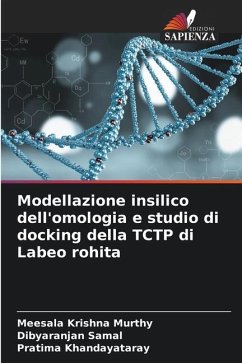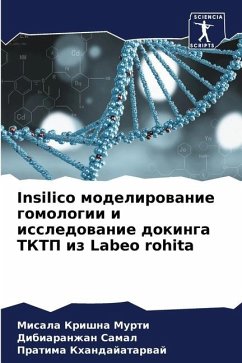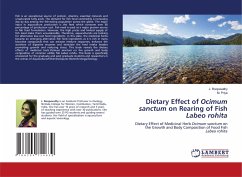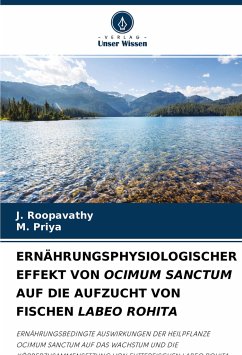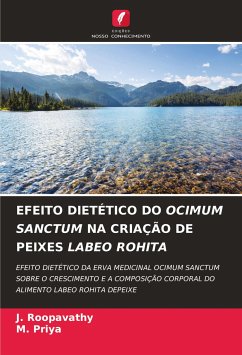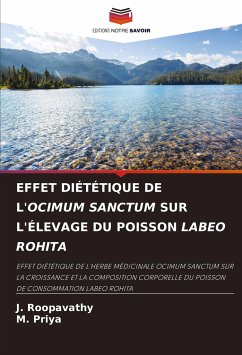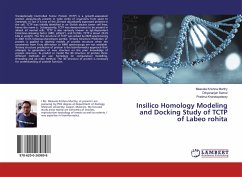
Insilico Homology Modeling and Docking Study of TCTP of Labeo rohita
Versandkostenfrei!
Versandfertig in 6-10 Tagen
27,99 €
inkl. MwSt.

PAYBACK Punkte
14 °P sammeln!
Translationally Controlled Tumor Protein (TCTP) is a growth-associated protein ubiquitously present in wide verity of organisms from yeast to mammals. In fact it is one of the 20 most abundantly expressed proteins in the cell. TCTP was initially identified in an Ehrlich ascites tumor cell lines, hence the name is . Subsequently, TCTP was demonstrated to be present in almost all normal cells. TCTP is also variously known as IgE-dependent histamine-releasing factor (HRF), p23/p21, and fortilin. TCTP is about 20-25 kDa in weight. The first structure of TCTP was solved by NMR spectroscopy in 2001 ...
Translationally Controlled Tumor Protein (TCTP) is a growth-associated protein ubiquitously present in wide verity of organisms from yeast to mammals. In fact it is one of the 20 most abundantly expressed proteins in the cell. TCTP was initially identified in an Ehrlich ascites tumor cell lines, hence the name is . Subsequently, TCTP was demonstrated to be present in almost all normal cells. TCTP is also variously known as IgE-dependent histamine-releasing factor (HRF), p23/p21, and fortilin. TCTP is about 20-25 kDa in weight. The first structure of TCTP was solved by NMR spectroscopy in 2001 from Schizosaccharomyces pombe. Tertiary Structure Prediction of protein is applied to develop models of protein structure when the constraints from X-ray diffraction or NMR spectroscopy are not available. Tertiary structure prediction of protein is the bioinformatics approach that attempts to generation of new structure on the prior knowledge of protein structure. To predict or model the 3Dstructure of protein three different methods are use: homology (or comparative) modelling, threading and ab initio method. The 3D structure of protein is necessary for understanding of protein function.



